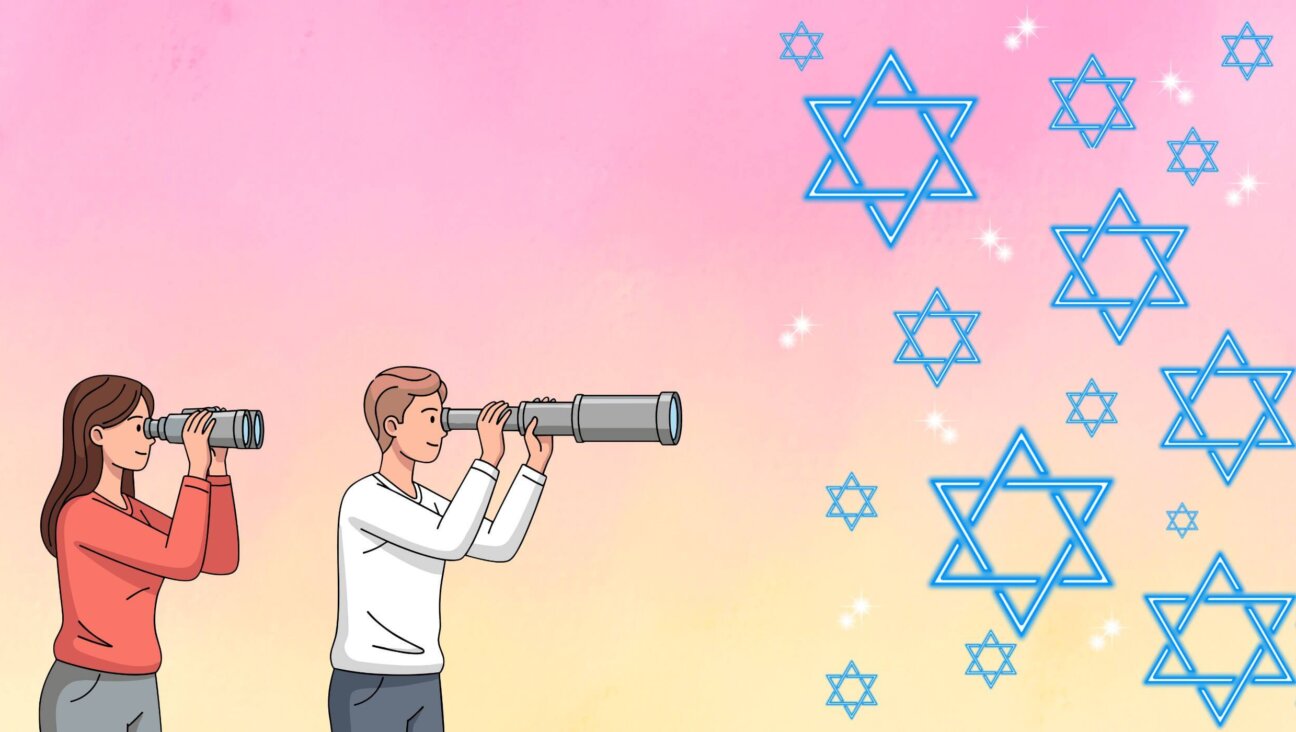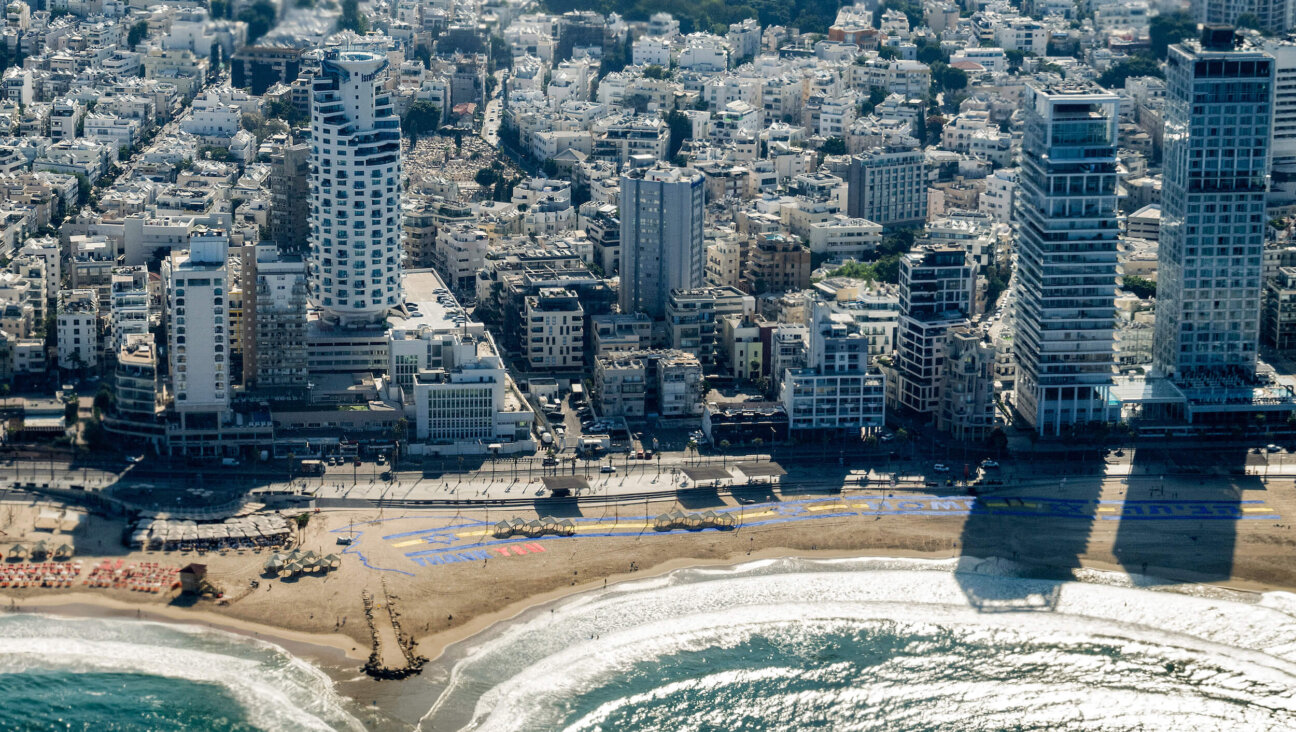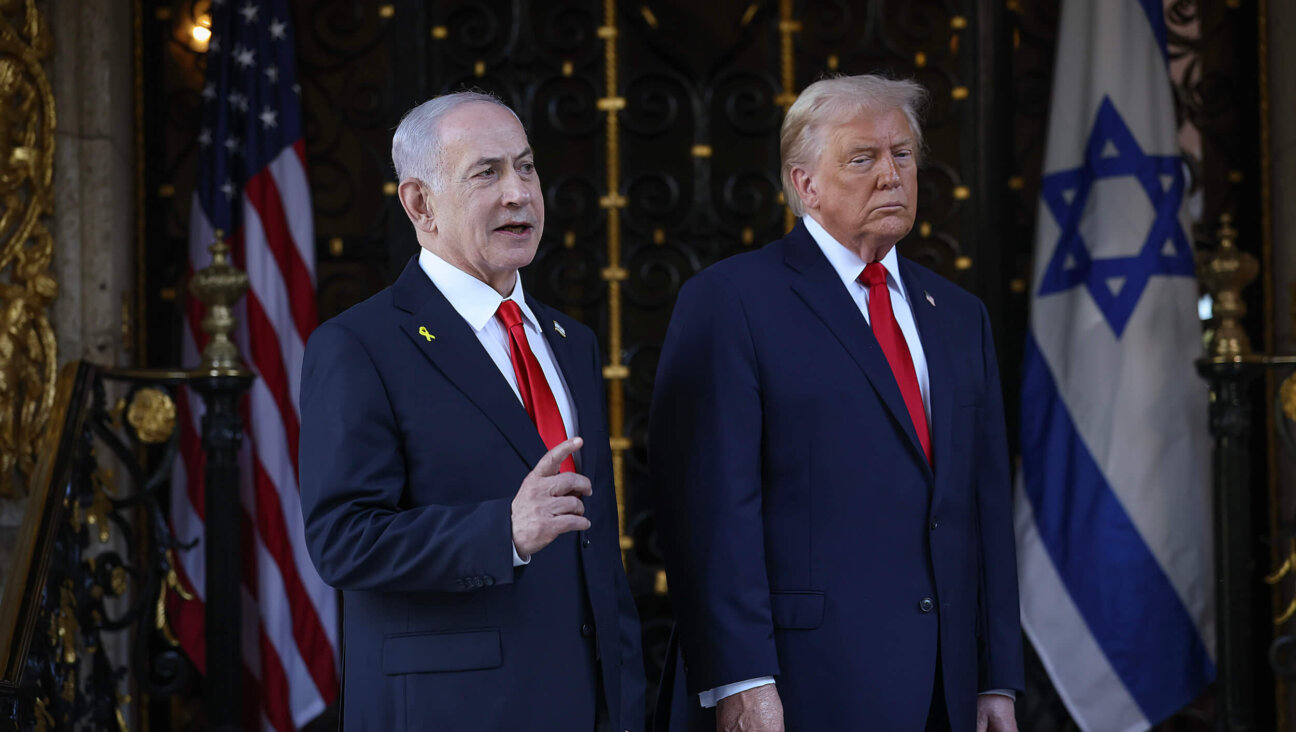The Silence in Cairo Can Be Heard in New York
Last month two Egyptians who normally wouldn’t cross paths — one a leader of the Muslim Brotherhood’s young guard, the other an outspoken liberal expatriate journalist — found a surprising bit of common ground on the Forward’s opinion page.
I was proud to have been involved in the affair. After all, it’s not everyday that voices like Ibrahim El Houdaiby and Mona Eltahawy declare that, their many differences aside, they’ll stand up together for a more democratic Egypt — and it’s certainly not everyday that it happens in an American Jewish newspaper like the Forward.
But for all my pride in my little editorial achievement, I couldn’t help but wonder: Shouldn’t some decision-makers in Egypt be embarrassed?
Think about it: Why is space found on the opinion page of the Forward, but not on the streets of Cairo, for dialogue between Egyptians like El Houdaiby and Eltahawy — two people who, at least as far as I can tell, really care about their country and genuinely want to make it a better place?
Does the Egyptian government really believe it can stifle such dialogue by throwing Ibrahim Eissa and other journalists in jail? As El Houdaiby and Eltahawy have shown, it’s going to take place no matter how hard the Egyptian authorities try to prevent it, so the only question is: Will Cairo allow for this kind of discussion at home, or will Egyptians need to find freer space elsewhere — like in an American Jewish newspaper?
Let’s be clear, what we’re talking about here is not some grand revolutionary plot against President Hosni Mubarak. In the opinion articles they wrote for the Forward, neither El Houdaiby nor Eltahawy limited their criticisms to the Egyptian government. In fact, both were rather critical of the only real political opposition in Egypt, the Muslim Brotherhood.
El Houdaiby described a comment about women made by the head of the Muslim Brotherhood, Mohammed Mahdi Akef, as “unjustifiable” and “offensive.” That may not sound like much, but consider the circumstances: This is a young member of the Muslim Brotherhood publicly criticizing his leader, in a newspaper read by tens of thousands of Jews in America.
Eltahawy had critical words as well. One of the main reasons for allowing the Muslim Brotherhood to participate in Egyptian politics, she argued, is so their ideas can be publicly exposed and challenged — not exactly an endorsement of Shariah-based government.
Of course, they also called for democratic reform in Egypt. El Houdaiby had his vision for how the situation could be improved, and Eltahawy had hers, but both emphasized the importance of allowing different opinions to be heard in Egypt.
It wasn’t that long ago when the same words were heard coming from the Egyptian government. Three years ago, actually.
While in Cairo to observe the ruling National Democratic Party’s conference on reform, I talked with Osama el Baz, the president’s longtime political adviser, as well as Investment Minister Mahmoud Mohieldin, Muslim Brotherhood political chief Essam Elerian and democracy advocate Saad Eddin Ibrahim.
All four men spoke openly. They differed on many issues, but they spoke with the confidence of men who believed that each was entitled to his own opinion. Sure, El Baz and Mohieldin were firm in their opposition to the kind of reform advocated by Elerian and Ibrahim, but the fact is that all four were quoted together in the report I wrote for the Forward.
Three years ago, each man was free to offer his own opinion. Since then, Elerian has been jailed three times, and Ibrahim has gone into self-imposed exile, lest he, too, end up behind bars again.
The numbers tell the story better than any words: Three years ago there were four voices speaking freely, today there are two — and Egypt is the lesser for it.
Oren Rawls is the opinion editor of the Forward.















